August 29, 2014 •
NYT Declines to Endorse Cuomo in Primary
The New York Times Editorial Board has declined to endorse Gov. Andrew Cuomo in the New York gubernatorial primary election. Citing Cuomo’s failure to eliminate political corruption in Albany and throughout the state, despite campaign promises to do so, the […]
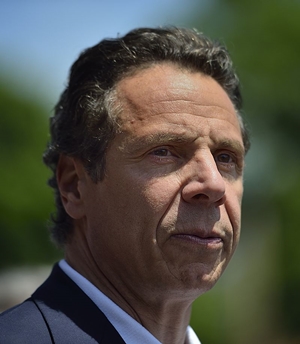 The New York Times Editorial Board has declined to endorse Gov. Andrew Cuomo in the New York gubernatorial primary election. Citing Cuomo’s failure to eliminate political corruption in Albany and throughout the state, despite campaign promises to do so, the editorial board wrote, “The state government remains as subservient to big money as ever.”
The New York Times Editorial Board has declined to endorse Gov. Andrew Cuomo in the New York gubernatorial primary election. Citing Cuomo’s failure to eliminate political corruption in Albany and throughout the state, despite campaign promises to do so, the editorial board wrote, “The state government remains as subservient to big money as ever.”
The board further declined to endorse any candidate in the Democratic primary, because the other candidate, Fordham law professor Zephyr Teachout, “does not have the breadth of interests and experience needed to govern a big and diverse state.”
Cuomo is heavily favored in the primary as he is the incumbent and has amassed vastly greater resources than his opponent. The New York state primary election will take place on September 9, 2014.
Photo of Gov. Andrew Cuomo by Diana Robinson on Wikimedia Commons.
August 29, 2014 •
Maine Ethics Commission Eliminates Per-Election Limit for 2014 Election
The Maine Ethics Commission voted unanimously on August 27, 2014, to no longer enforce certain provisions of Maine’s campaign finance law. This vote is a result of a federal court ruling enjoining the per-election contribution limit as applied to independent […]
 The Maine Ethics Commission voted unanimously on August 27, 2014, to no longer enforce certain provisions of Maine’s campaign finance law. This vote is a result of a federal court ruling enjoining the per-election contribution limit as applied to independent candidates in the state’s upcoming gubernatorial general election. The federal judge who issued the ruling mandated a commission vote on the issue no later than August 29, 2014.
The Maine Ethics Commission voted unanimously on August 27, 2014, to no longer enforce certain provisions of Maine’s campaign finance law. This vote is a result of a federal court ruling enjoining the per-election contribution limit as applied to independent candidates in the state’s upcoming gubernatorial general election. The federal judge who issued the ruling mandated a commission vote on the issue no later than August 29, 2014.
The commission decided donors to other state gubernatorial candidates, including current governor Paul LePage, could give a total of $3,000 to each candidate for the full election cycle. The decision by the commission only applies to the 2014 gubernatorial election.
Permanent changes to state campaign finance law must come from the Legislature.
August 29, 2014 •
News You Can Use Digest – August 29, 2014
From the States and Municipalities: Alabama – Alabama Ethics Commission Wants Interim Director as Search for Permanent Hire Begins Greenfield Daily Reporter – Kim Chandler (Associated Press) | Published: 8/27/2014 The Alabama Ethics Commission voted to offer the position of acting […]

From the States and Municipalities:
Alabama – Alabama Ethics Commission Wants Interim Director as Search for Permanent Hire Begins
Greenfield Daily Reporter – Kim Chandler (Associated Press) | Published: 8/27/2014
The Alabama Ethics Commission voted to offer the position of acting director to former Cumberland Law School Dean John Carroll. Current Director Jim Sumner is retiring on October 1. The ethics panel also began the search for a permanent director. Commission Chairperson Larkin Martin said her colleagues want an acting director in place because of the time it will take to make a permanent hire.
California – Calls Grow for Wider Inquiry into Bidding on L.A. Unified iPad Project
Los Angeles Times – Howard Bloom and Teresa Watanabe | Published: 8/26/2014
Faced with criticism about the planning and rollout of a $1 billion effort by the Los Angeles Unified School District to provide iPads to all students, Superintendent John Deasy suspended future use of a contract with Apple. The move follows disclosures that Deasy and his top deputy had close contact with executives at Apple, which makes the iPad, and Pearson Education, the company providing the curriculum on the tablets. In addition, an internal district report found the implementation of the iPad plan was beset by a flawed bidding process.
California – Ed Lee Campaign Faces Dilemma over Alleged FBI Contribution
San Francisco Chronicle – John Coté | Published: 8/27/2014
An undercover FBI agent allegedly arranged for $20,000 to be donated to San Francisco Mayor Ed Lee’s campaign in a transaction that possibly violated the city’s campaign finance law. Lee’s campaign treasurer sent a letter to the U.S. attorney’s office saying he has been trying to get information from the office about the alleged contributions. But the U.S. attorney’s office said the information will not be forthcoming because it is under court seal in the complex public corruption case of suspended state Sen. Leland Yee.
Florida – Florida Judge Deals a Blow to Democrats on Districting
New York Times – Lizette Alvarez | Published: 8/22/2014
A Florida judge allowed the use of voting districts favoring Republicans in November while approving revised congressional boundaries for subsequent elections. Circuit Court Judge Terry Lewis ruled earlier that the election map was improperly drawn and ordered the Legislature to revise the districts to address “gerrymandering” in two of them. While voting-rights groups argued a new map should go into effect in 2014, Lewis said in his ruling that holding special elections this year for the districts “is not an appropriate remedy under the circumstances.” The new map would instead be in place for 2016 elections.
Iowa – Former Aide to Michele Bachmann Pleads Guilty over Campaign Finance Misdeeds
Minneapolis Star Tribune – Corey Mitchell | Published: 8/27/2014
Former Iowa Sen. Kent Sorenson pleaded guilty to federal charges he accepted money from then-U.S. Rep. Ron Paul’s 2012 presidential campaign to switch his endorsement from U.S. Rep. Michele Bachmann, who was also running for the GOP nomination, and then lying to investigators about the money. Sorenson has been at the center of accusations he was paid for his endorsement, first by the Bachmann campaign and then by the Paul campaign. Sorenson was seen as a key endorsement ahead of the 2012 Iowa caucuses as a popular figure in the emerging tea party movement.
Maine – Maine Ethics Panel Allows Cutler to Raise as Much as Party Candidates
Portland Press Herald – Steve Mistler | Published: 8/27/2014
The Maine Commission on Governmental Ethics and Election Practices decided gubernatorial candidates will be able to collect larger contributions from donors this fall. The commission unanimously voted to allow all candidates to accept up to $3,000 per donor over the course of this year’s election cycle. The decision levels the playing field for independent candidate Eliot Cutler, who was previously able to receive only half what major party candidates have been able to collect over the course of their primary and general elections. But it also impacts the campaigns of Gov. Paul LePage and Mike Michaud by allowing them to bring in double the amount from any new donors this fall.
North Carolina – Former NC House Speaker Brubaker Ranked Top Lobbyist at General Assembly in 2013
The Tribune; Associated Press – | Published: 8/26/2014
Former House Speaker Harold Brubaker is the most influential lobbyist in the General Assembly, according to rankings from the North Carolina Center for Public Policy Research. After his 2012 resignation, Brubaker expanded his law firm, Brubaker & Associates, to include lobbying work. In 2014, his roughly two dozen clients include health care companies such as GlaxoSmithKline and Blue Cross Blue Shield of North Carolina, as well as the North Carolina Association of Realtors and Pepsico.
Pennsylvania – After Ethics Violations, LCB Changes Code of Conduct
Philadelphia Inquier – Angela Couloumbis | Published: 8/27/2014
The Pennsylvania Liquor Control Board (LCB) revised its code of conduct for employees and implemented new guidelines for firms doing business with the agency. It explicitly prohibits employees from accepting anything of value, under any circumstances, from vendors doing business or seeking to do business with the LCB. For vendors, the new rules primarily ban them from giving gifts to LCB employees. But it also states the agency could “from time to time” audit vendors to ensure they are complying.
Pennsylvania – Former Aide’s Guilty Plea Raises Questions for U.S. Rep. Chaka Fattah
Philadelphia Inquier – Jeremy Roebuck, Mark Fazlollah, and Craig McCoy | Published: 8/27/2014
Gregory Naylor, a former aide to U.S. Rep. Chaka Fattah, pleaded guilty to lying to federal agents and attempting to conceal the misuse of campaign funds during Fattah’s 2007 mayoral bid in Philadelphia. Naylor admitted he conspired with his boss – identified in court filings only as “Elected Official A” – to pay off debts with grant funds and political contributions funneled through a series of nonprofits and consulting firms. Prosecutors would not confirm the identity of the elected official identified in Naylor’s plea documents, but their description of the politician overlaps with several key details of Fattah’s 10-term congressional career.
South Carolina – Lawmakers Question Decision in Benjamin Ethics Case, Seek to Strengthen Law
The State – Cliff LeBlanc | Published: 8/27/2014
The South Carolina Ethics Commission ruled state law did not require Columbia Mayor Steve Benjamin to disclose an all-expenses paid trip to Florida paid for by a developer interested in doing business in the city. House Majority Leader Bruce Bannister said he and most legislators interpret the reporting provision of the law to require disclosure of a trip like the one Benjamin took. Because of the commission’s decision, Bannister said the House will revisited that provision as the General Assembly tries again next year to update the law.
Texas – Ethics Commission Takes Aim at Texas Dark Money
Houston Chronicle – David Saleh Rauf (San Antonio Express News) | Published: 8/21/2014
The Texas Ethics Commission moved forward with a measure to reveal secret campaign contributors despite a pending federal lawsuit by a conservative group over whether the agency has the authority to regulate dark money disclosure. The commission presented a draft proposal to require a nonprofit to disclose donors if 25 percent or more of its expenditures can be classified as politically motivated. It would also require disclosure if political donations account for more than 25 percent of the group’s total contributions in a calendar year. The commission will accept public comments on the proposal for at least 30 days.
Wisconsin – Emails Show Bigger Fund-Raising Role for Wisconsin Leader
New York Times – Adam Nagourney and Michael Barbaro | Published: 8/22/2014
Gov. Scott Walker personally solicited millions of dollars in contributions for the issue-advocacy group Wisconsin Club for Growth, lawyers for the special prosecutor investigating him said in court papers. The documents form much of the basis for prosecutors’ theory that Walker’s campaign and conservative groups illegally cooperated to help him and other Republicans during recall elections. The investigation has pulled back the curtain on the ways politicians and their aides seek to get around the welter of state and national campaign finance restrictions to accommodate donors.
 State and Federal Communications produces a weekly summary of national news, offering more than 80 articles per week focused on ethics, lobbying, and campaign finance.
State and Federal Communications produces a weekly summary of national news, offering more than 80 articles per week focused on ethics, lobbying, and campaign finance.
August 27, 2014 •
NC Gov. Signs Senate Bill 403
Gov. Pat McCrory signed Senate Bill 403 into law. The bill requires treasurers of political committees with contributions, expenditures, or loans totaling more than $10,000 in an election cycle to electronically file campaign finance reports. North Carolina law already requires […]
 Gov. Pat McCrory signed Senate Bill 403 into law. The bill requires treasurers of political committees with contributions, expenditures, or loans totaling more than $10,000 in an election cycle to electronically file campaign finance reports.
Gov. Pat McCrory signed Senate Bill 403 into law. The bill requires treasurers of political committees with contributions, expenditures, or loans totaling more than $10,000 in an election cycle to electronically file campaign finance reports.
North Carolina law already requires electronic filing for political committees making contributions in excess of $5,000 to candidates for statewide office or making independent expenditures in excess of $5,000 affecting contests for statewide office. This provision of the bill takes effect January 1, 2017.
Senate Bill 403 further permits counties, municipalities, and special districts to schedule special elections only when a general or primary election is already scheduled or when there is a general election requiring all county precincts to be open. This provision of the bill takes effect January 1, 2015, and applies to all special elections held on or after that date.
August 25, 2014 •
TX Ethics Commission Issues Advisory Opinions and Proposed Rule Changes
On August 21, the Texas Ethics Commission issued two advisory opinions and a proposed rule amendment. Advisory Opinion 519 holds a state candidate is not prohibited from accepting an in-kind political contribution from an out-of-state political committee. The contribution to […]
 On August 21, the Texas Ethics Commission issued two advisory opinions and a proposed rule amendment.
On August 21, the Texas Ethics Commission issued two advisory opinions and a proposed rule amendment.
Advisory Opinion 519 holds a state candidate is not prohibited from accepting an in-kind political contribution from an out-of-state political committee. The contribution to a candidate is allowed if made from a permissible source and the candidate properly complies with the applicable disclosure requirements.
In Advisory Opinion 518, the commission upheld that a group is not a political committee if not accepting or intending to accept political contributions and not using or intending to use more than 20 percent of its funds and other resources to make political expenditures.
The Ethics Commission also voted to propose a rule change by defining “principal purpose” in relation to a group making political contributions and expenditures. While a group can have more than one principal purpose, the definition would create a threshold triggering the disclosure of political contributions and expenditures. The commission also proposed other rule changes. The proposed rules are currently open for comment.
Photo of the Texas Capitol Rotunda dome interior by Ed Uthman on Wikimedia Commons.
August 25, 2014 •
Our August Scrapbook
State and Federal Communications hosted a reception after an Akron Roundtable Luncheon featuring Diane Laney Fitzpatrick, author of Home Sweet Homes. Here are a pair of photos from the International BIO International Convention in San Diego, California.
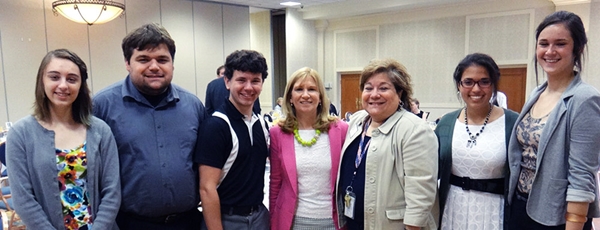
Diane Laney Fitzpatrick, Elizabeth Z. Bartz, Elaina Laikos, and Alessandra Dickos.
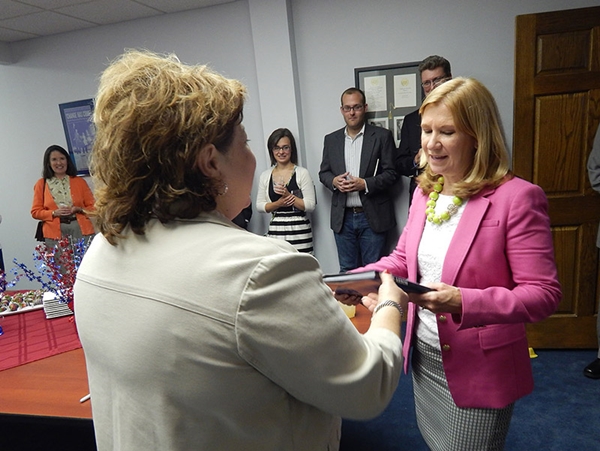

Here are a pair of photos from the International BIO International Convention in San Diego, California.

![Elizabeth Bartz photographed here with NBA great, Bill Walton, [at 6'11"] formerly of the Boston Celtics.](http://stateandfed.com/wp-content/uploads/2014/08/Bill-Walton-former-Celtic.jpg)
August 25, 2014 •
Florida Judge Approves Changes to Congressional Map
A Leon County Circuit Court judge has approved the Florida Legislature’s changes to the state’s congressional map. Judge Terry Lewis’ ruling in July found the 5th and 10th congressional districts to be in violation of the Florida Constitution and ordered […]
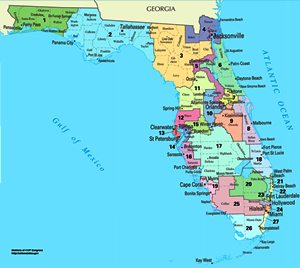 A Leon County Circuit Court judge has approved the Florida Legislature’s changes to the state’s congressional map. Judge Terry Lewis’ ruling in July found the 5th and 10th congressional districts to be in violation of the Florida Constitution and ordered the Legislature to redraw the map. The approval, however, did not call for a special election to implement the new districts.
A Leon County Circuit Court judge has approved the Florida Legislature’s changes to the state’s congressional map. Judge Terry Lewis’ ruling in July found the 5th and 10th congressional districts to be in violation of the Florida Constitution and ordered the Legislature to redraw the map. The approval, however, did not call for a special election to implement the new districts.
All 2014 elections will be held under the current map and the changes, affecting a total of seven districts, will go into effect in 2016. Challengers of the congressional map, including the League of Women Voters, believe the new map does not go far enough and plan to appeal.
August 25, 2014 •
California Bill to Prohibit Lobbyist Gifts Back to Senate
The Senate is considering minor amendments to a bill passed by both chambers to further restrict gifts to lawmakers. Senate Bill 1443 prohibits all gifts from lobbyists and reduces the value of gifts state officials can receive from a non-lobbyist […]
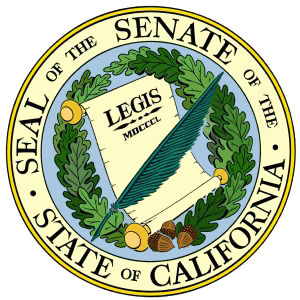 The Senate is considering minor amendments to a bill passed by both chambers to further restrict gifts to lawmakers. Senate Bill 1443 prohibits all gifts from lobbyists and reduces the value of gifts state officials can receive from a non-lobbyist source to $200 per calendar year.
The Senate is considering minor amendments to a bill passed by both chambers to further restrict gifts to lawmakers. Senate Bill 1443 prohibits all gifts from lobbyists and reduces the value of gifts state officials can receive from a non-lobbyist source to $200 per calendar year.
Currently, lobbyists may provide gifts of $10 per calendar month and officials can receive $440 from a non-lobbyist source per calendar year. The bill also prohibits giving tickets to most entertainment events, golfing green fees, and spa treatments.
August 25, 2014 •
South Carolina House to Hold Veto Special Session
House members will hold a special, one-day session to consider two bills vetoed by Gov. Nikki Haley on Wednesday, August 27, 2014. The bills would allow public libraries keep out disrupters and permit a local tax hike for firefighting in […]
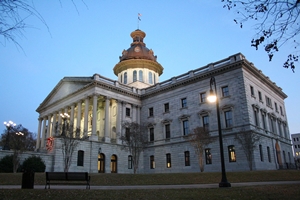 House members will hold a special, one-day session to consider two bills vetoed by Gov. Nikki Haley on Wednesday, August 27, 2014. The bills would allow public libraries keep out disrupters and permit a local tax hike for firefighting in coastal Murrell’s Inlet and Garden City.
House members will hold a special, one-day session to consider two bills vetoed by Gov. Nikki Haley on Wednesday, August 27, 2014. The bills would allow public libraries keep out disrupters and permit a local tax hike for firefighting in coastal Murrell’s Inlet and Garden City.
The Senate voted overwhelmingly to override the vetoes, but those votes occurred after the House had adjourned in June. An override requires a two-thirds vote in both chambers.
August 22, 2014 •
Maine Per-election Contribution Limit Overturned in Federal Court
U.S. District Court Judge D. Brock Hornby ruled in favor of four supporters of independent gubernatorial candidate Eliot Cutler who sued the state of Maine, alleging minor parties are at a disadvantage under sections 1015(1) and 1015(2) of Chapter 21-A […]
 U.S. District Court Judge D. Brock Hornby ruled in favor of four supporters of independent gubernatorial candidate Eliot Cutler who sued the state of Maine, alleging minor parties are at a disadvantage under sections 1015(1) and 1015(2) of Chapter 21-A of the Maine Revised Statutes. These provisions of law impose a per election limit of $1,500 per individual or entity.
U.S. District Court Judge D. Brock Hornby ruled in favor of four supporters of independent gubernatorial candidate Eliot Cutler who sued the state of Maine, alleging minor parties are at a disadvantage under sections 1015(1) and 1015(2) of Chapter 21-A of the Maine Revised Statutes. These provisions of law impose a per election limit of $1,500 per individual or entity.
Hornby granted a preliminary injunction, reasoning the per election limit unconstitutionally applied to supporters of Cutler. This ruling effectively allows supporters of Cutler to increase their contributions to $3,000 during the upcoming general election.
Whether the ruling will be appealed by the state is unclear.
The New York City Council is considering a measure increasing disclosure requirements for those making independent expenditures to influence city elections. Introduction 148 will require individuals and entities making independent expenditures totaling $5,000 or more to disclose the owners, partners, […]
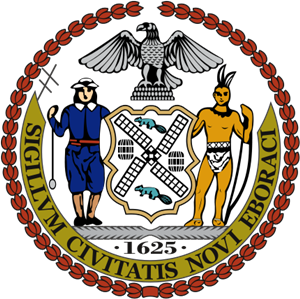 The New York City Council is considering a measure increasing disclosure requirements for those making independent expenditures to influence city elections. Introduction 148 will require individuals and entities making independent expenditures totaling $5,000 or more to disclose the owners, partners, board members, or their equivalents of any entity reporting the expenditure. The measure further requires an individual or entity who transfers $1,000 or more to another individual or entity for the purpose of such other individual or entity making independent expenditures to report the transfer of money as if the transferor has directly made the independent expenditure.
The New York City Council is considering a measure increasing disclosure requirements for those making independent expenditures to influence city elections. Introduction 148 will require individuals and entities making independent expenditures totaling $5,000 or more to disclose the owners, partners, board members, or their equivalents of any entity reporting the expenditure. The measure further requires an individual or entity who transfers $1,000 or more to another individual or entity for the purpose of such other individual or entity making independent expenditures to report the transfer of money as if the transferor has directly made the independent expenditure.
Another provision of the measure requires individuals or entities to disclose detailed information on any electioneering communications, such as the top five donors to the entity responsible for the communication, and names of the owner and CEO of the entity.
Amy Loprest, the executive director of the New York City Campaign Finance Board, applauded the new disclosure requirements, saying, “This legislation will give voters a more complete view of who is paying for the campaign ads that fill their mailboxes and airwaves.”
If passed, Introduction 148 will take effect one year after its enactment.
August 22, 2014 •
MSRB Pay-to-Play Amendments Open for Public Comment
The Municipal Securities Rulemaking Board (MSRB) is requesting comments on amendments to its pay-to-play law. MSRB Rule G-37 prohibits certain political contributions for two years prior to engaging in a municipal securities business where a related official received contributions. The […]
 The Municipal Securities Rulemaking Board (MSRB) is requesting comments on amendments to its pay-to-play law. MSRB Rule G-37 prohibits certain political contributions for two years prior to engaging in a municipal securities business where a related official received contributions. The amendments seek to extend the pay-to-play rule to municipal advisors.
The Municipal Securities Rulemaking Board (MSRB) is requesting comments on amendments to its pay-to-play law. MSRB Rule G-37 prohibits certain political contributions for two years prior to engaging in a municipal securities business where a related official received contributions. The amendments seek to extend the pay-to-play rule to municipal advisors.
In its press release, MSRB Executive Director Lynnette Kelly said, “Applying our well-established dealer pay-to-play rule to municipal advisors will help ensure that all regulated municipal market entities and professionals are held to the same high standards of integrity.”
Comments are due no later than October 1, 2014.
August 22, 2014 •
News You Can Use Digest – August 22, 2014
From the States and Municipalities: California – Lawmakers Pass Bills to Outlaw Lobbyists’ Gifts, Disclose Actors Used in Campaign Commercials Columbus Republic; Associated Press – | Published: 8/18/2014 The California Assembly approved a measure that would lower the gift limit […]

From the States and Municipalities:
California – Lawmakers Pass Bills to Outlaw Lobbyists’ Gifts, Disclose Actors Used in Campaign Commercials
Columbus Republic; Associated Press – | Published: 8/18/2014
The California Assembly approved a measure that would lower the gift limit to elected officials from $440 to $200 and prohibit them from accepting free entry to professional sports and entertainment events, golf tournaments, spa treatments, and amusement parks. Senate Bill 1443 would outlaw gifts from lobbyists. It now goes back to the Senate for approval of minor amendments.
California – Panel Wants L.A. to Look at Using Prizes to Boost Voter Turnout
Los Angeles Times – David Zahniser | Published: 8/16/2014
With fewer than a fourth of voters showing up for recent local elections, the Los Angeles Ethics Commission voted to recommend that the city council consider a cash-prize drawing as an incentive to vote. Federal law prohibits payment for voting, but Ethics Commission member Jessica Levinson, who is also a law school professor, says that statute would not apply to elections without federal races on the ballot. California law prohibits money or gifts for votes for a particular candidate or measure, or payment to stay away from the polls altogether.
Colorado – Citizens United Suing Colorado over ‘Rocky Mountain Heist’ Funders
Denver Post – Joey Bunch | Published: 8/14/2014
Citizens United filed a lawsuit against Colorado Secretary of State Scott Gessler in federal court. The Virginia-based conservative group is finishing a movie called “Rocky Mountain Heist,” about those who have influenced Colorado’s political swing to the left over the past decade, calling out advocacy groups and politicians, likely including Gov. John Hickenlooper and U.S. Sen. Mark Udall, who are in tough races this fall. In June, Deputy Secretary of State Suzanne Staiert ruled the group would need to disclose the movie’s financiers under state campaign laws. The organization contended it deserved the same free-speech protections as traditional media.
Florida – Suspended Miami Lakes Mayor Michael Pizzi Is Found Not Guilty
Miami Herald – David Ovalle and Jay Weaver | Published: 8/14/2014
Suspended Miami Lakes Mayor Michael Pizzi was acquitted in a federal corruption case in which he was accused of accepting bribes from undercover FBI agents. Pizzi was accused of accepting $6,750 in payments between 2011 and 2013 in exchange for his help in obtaining federal grant money for both Miami Lakes and the nearby town of Medley, where he was the city attorney. The agents, pretending to be businesspeople, told Pizzi they intended to keep the hundreds of thousands of dollars in grant money for themselves. Pizzi’s lawyers portrayed him as honest and the victim of entrapment by overzealous FBI agents looking to make a high-profile arrest.
Indiana – Officials Defend Exceptions to Indiana Ethics Rules That Were Meant to Prevent Conflicts of Interest
Indianapolis Star – Ryan Sabalow | Published: 8/16/2014
Indiana’s ethics laws require that former state employees take at least a year off before working as a lobbyist or going to work for companies they once regulated. But an exception to the law allows public employees to circumvent the “revolving-door” rules. That exception: ask your former boss to grant you a waiver. The waiver is binding and does not require the approval of the state’s Ethics Commission. Other states such as Washington and Connecticut, which have earned top rankings by good-government groups for their “revolving-door” restrictions, do not allow waiting periods to be waived.
Massachusetts – Galvin to Launch Inquiry into Lobbyist
Boston Globe – David Scharfenberg | Published: 8/21/2014
Massachusetts Secretary of State William Galvin launched an inquiry into the activities of lobbyist John Brennan, who is a former state lawmaker. Attorney General Martha Coakley alleges the Brennan Group collected $370,000 in improper lobbying fees from the Franciscan Hospital for Children through a contingency fee. State law bars contingency agreements. In an agreement with Coakley’s office, the Brennan Group made no admission of guilt but agreed to repay Franciscan $100,000 of the disputed lobbying fees. “The agreement raises more questions than it answers,” said Galvin.
New Mexico – Duran, in Turnaround, OKs King’s Contested Campaign Contributions
Santa Fe New Mexican – Steve Terrell | Published: 8/14/2014
New Mexico Secretary of State Dianna Duran reversed her office’s initial finding that donations received by Democratic gubernatorial candidate Gary King violated the state’s campaign contribution limits. Facing a state Supreme Court hearing on the matter, Duran wrote in a letter to King that she no longer considered the donations in question to be impermissible. She said the decision was made after she weighed the arguments of King, the state’s attorney general.
New York – Bill Seeks More Disclosure for Certain Campaign Spending
Capital New York – Sally Goldenberg | Published: 8/20/2014
A bill that would mandate more information about independent expenditures be made public is expected to pass the New York City Council and be signed into law by Mayor Bill de Blasio. The legislation requires independent expenditures to list their top three donors on campaign literature they mail to voters. The information would also have to be presented on advertisements. It would not apply to those who give less than $5,000 in independent spending because they are not required to report their donors to the Campaign Finance Board.
Oklahoma – Ethics Commission to Consider Fees for Training
KGOU; eCapitol – | Published: 8/20/2014
Under a proposed rule, the Oklahoma Ethics Commission would be able to charge registration fees to lobbyists, principals, PACs, and candidate committees. The commission would be required to publish the fees annually on July 1 of each year beginning in 2015. The proposed amendment will be the subject of a public hearing, and a possible vote during the commission’s September meeting.
Pennsylvania – U.S. Court Lifts Ban on Campaign Donations by Phila. Police Officers
Philadelphia Inquirer – Chris Hepp | Published: 8/20/2014
The U.S. Third Circuit Court of Appeals ruled Philadelphia police officers should be allowed to donate money to their union’s PAC. The ruling strikes down a ban enacted in 1919. The appeals court said the city had failed to show the prohibition, which applies to no other city employees, was effective in stemming political influence and corruption within the department, which was its original intent.
South Carolina – S.C. House Speaker Bobby Harrell Announces Grand Jury Probe Has Ended
Charleston Post & Courier – Cynthia Roldan, Jeremy Borden, and Schuler Knopf | Published: 8/16/2014
A grand jury investigation of South Carolina House Speaker Bobby Harrell has ended without charges and state Attorney General Alan Wilson has recused himself from the case, with the matter now in the hands a local prosecutor, according to Harrell’s office. A complaint alleged Harrell had improperly used campaign funds and had used his influence to obtain a state permit for his pharmaceutical business. Harrell has denied any impropriety.
Texas – Gov. Rick Perry of Texas Is Indicted on Charge of Abuse of Power
New York Times – Manny Fernandez | Published: 8/15/2014
A grand jury indicted Texas Gov. Rick Perry on two felony counts, saying he abused his office and used a veto threat to coerce Travis County District Attorney Rosemary Lehmberg to resign. The grand jury considered an ethics complaint that alleged Perry abused his veto power when he cut funding for the state’s anti-corruption unit, which is part of the Travis County district attorney’s office. The indictment comes as Perry, who is stepping down at the end of his term after 14 years in office, attempts to rehabilitate his political image as he considers another presidential campaign.
Washington – Ethics Panel Takes Preliminary Vote on Limiting Free Lobbyist Meals for Lawmakers
Columbus Republic – Rachel La Corte (Associated Press) | Published: 8/19/2014
Members of the Washington Legislature could get no more than 12 free meals a year from lobbyists under a plan tentatively approved by the Legislative Ethics Board. The board voted to define, for the first time, what current law means when it prohibits public officials from accepting free meals on more than “infrequent occasions.” The rule would not take effect until a final vote later this year on the overall proposal surrounding rules concerning meals.
Wisconsin – GOP Lawmakers Recruit Lobbyists for Door-to-Door Visits
Milwaukee Journal Sentinel – Patrick Marley | Published: 8/15/2014
Wisconsin Assembly leaders are recruiting lobbyists to help with door-to-door campaigns aimed at boosting the party’s majority in the chamber. The effort is called “Leggiepalooza,” a take-off on the Lollapalooza music festivals. Some lobbyists said they were uncomfortable with being asked to help with door knocking because they feared they could have a harder time passing bills if they did not participate. Others said they saw no problem with it.
 State and Federal Communications produces a weekly summary of national news, offering more than 80 articles per week focused on ethics, lobbying, and campaign finance.
State and Federal Communications produces a weekly summary of national news, offering more than 80 articles per week focused on ethics, lobbying, and campaign finance.
August 21, 2014 •
California Passes Pay-to-Play Bill to Include Water Boards
Legislators have approved an expansion of pay-to-play rules in response to a controversy involving suspended Sen. Ronald S. Calderon and his brother, former Assemblyman Tom Calderon. The two Democrats from Montebello made large campaign donations to most members of the […]
 Legislators have approved an expansion of pay-to-play rules in response to a controversy involving suspended Sen. Ronald S. Calderon and his brother, former Assemblyman Tom Calderon. The two Democrats from Montebello made large campaign donations to most members of the Central Basin Municipal Water District Board before it approved a consulting contract for Tom Calderon.
Legislators have approved an expansion of pay-to-play rules in response to a controversy involving suspended Sen. Ronald S. Calderon and his brother, former Assemblyman Tom Calderon. The two Democrats from Montebello made large campaign donations to most members of the Central Basin Municipal Water District Board before it approved a consulting contract for Tom Calderon.
Assembly Bill 1728 will add elected water board members throughout California to the list of officers who may not accept campaign contributions of more than $250 from donors with business pending before their boards. Officers must abstain from voting on pending business matters if such a donation has been received during the previous year.
The legislation now goes to Gov. Jerry Brown.
State and Federal Communications, Inc. provides research and consulting services for government relations professionals on lobbying laws, procurement lobbying laws, political contribution laws in the United States and Canada. Learn more by visiting stateandfed.com.

